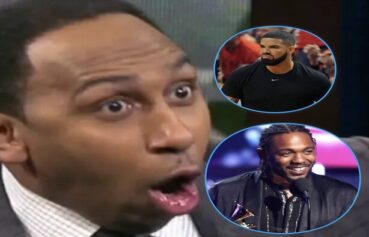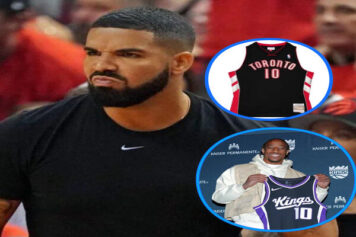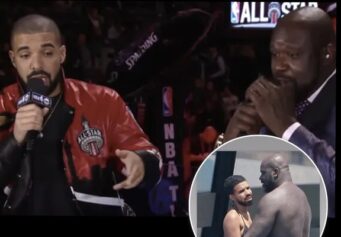Its impossible to have a conversation about Macklemores influence in the hip hop industry without considering how much his presence has gentrified the culture. But it seems like he is fully cognizant of the sentiment. It also serves as the genesis of the critiques aimed at the Seattle rappers release of White Privilege II, an eight-minute mea culpa of his complicity in appropriating hip hop.
The song revealed a remarkable capacity for self-reflection that few of his white peers namely, Iggy Azalea, who he seemingly dissed in his track have demonstrated. Macklemore acknowledges his critics feelings that white supremacy, not his talent, is likely the primary reason he is successful:
You’ve exploited and stolen the music, the moment
The magic, the passion, the fashion, you toy with
The culture was never yours to make better
You’re Miley, you’re Elvis, you’re Iggy Azalea
Fake and so plastic, you’ve heisted the magic
You’ve taken the drums and the accent you rapped in
You’re branded hip-hop, it’s so fascist and backwards
That Grandmaster Flash’d go slap it, you bastard
All the money that you made
Certainly, his lyrics are far more reflective than the first version of White Privilege, which he dropped in 2005. In 2016, it appears he is ready to have uncomfortable conversations with his fan base and others about whats really driving his success.
Others, however, are more suspicious of his intent:
Macklemore chose a route that has no financial risk for him & plenty of potential reward. John Legend & others are paying bills for BLM
Mikki Kendall (@Karnythia) January 22, 2016
White people have a history of watering down the messages of black radicals and getting paid for it.
BussItOpenForVegeta (@BacksliderDee) January 22, 2016
Basically Macklemore was looking for a way to get relevant again n he chose the #BlackLivesMatter route
Wild Wild Seth (@SpikeReed) January 22, 2016
I think my issue w/ Macklemore’s “White Privilege 2” is that much like “Same Love,” Macklemore’s “consciousness” is discussed the most.
Charles Wade (@akacharleswade) January 22, 2016
But Macklemore has plenty of supporters as well:
I am proud to call @macklemore a friend & an ally. This song is beautiful. The words…. https://t.co/YT0tmFXanZ
Talib Kweli Greene (@TalibKweli) January 22, 2016
I think that Macklemore’s latest song, White Privilege II, is powerful, important, & necessary. It, like all art, is also open to critique.
deray mckesson (@deray) January 22, 2016
y’all: white people need to address their priviledgemacklemore: *does just that*y’all: but he’s still not trying to fix it??????
elysa (@localblackgirl) January 22, 2016
The wide spectrum of reactions reveals how polarizing an artist he is in the hip hop world, even while attempting to acknowledge his complicity, intentional or not, in gentrifying it.
What is most critical to understand about White Privilege II, though, is that its not directed at black people anyway; it is a musical soliloquy primarily intended for white ears to eavesdrop on.
For those white fans who choose to listen, Macklemore is challenging them to ponder their support. Do they really like his music or is their fandom is based on preferring a black-sounding white guy to rap and speak about racism over a black artist doing the same thing because the black person makes them feel uncomfortable?

(Photo Credit: USA Today)
He explores this question in verse 4:
But the one thing the American dream fails to mention
Is I was many steps ahead to begin with
My skin matches the hero, likeness, the image
America feels safe with my music in their systems
And it’s suited me perfect, the role, I’ve fulfilled it
And if I’m the hero, you know who gets cast as the villain
White supremacy isn’t just a white dude in Idaho
White supremacy protects the privilege I hold
White supremacy is the soil, the foundation, the cement and the flag that flies outside of my home
White supremacy is our country’s lineage, designed for us to be indifferent
My success is the product of the same system that let off Darren Wilson guilty
This is a very powerful self-reflection of his position in Hip Hop that should compel his white fans to consider why rappers like Dej Loaf, for example, dont get half the accolades Iggy does. (And if you dont know who Dej Loaf is, your making my point)
What is equally important to take away from that verse is that the polarizing position Macklemore holds in Hip Hop is not of his own making. The white supremacy from which he benefits was in full effect long before he was born.
He should, nonetheless, use his popularity to boost black artists whom the industry ignores, because it is believed they do not have mass appeal (translation: white people wont like them)
That is what many black people are asking Macklemore to do: “OK. You admit you have privilege. What actions are you taking to use it for the benefit of black people?”
It is a legitimate request for a man who is expressing an interest in using his platform to reverse the racism he feels aided his rise. It is also fair to ask if White Privilege II is a marketing stunt to promote his album thats scheduled to drop next week.
Such skepticism not unreasonable. He was criticized in 2014 for posting to Instagram a private text message to Kendrick Lamar lamenting that the Compton-based rapper should have won the 2014 Grammy Award for Best New Artist, not he.
“You got robbed,” the text read, in part. “I wanted you to win. You should have. It’s weird and it sucks that I robbed you.”
Drake and others criticized him for making it public and that doing so came across as insincere.
Did Macklemores white guilt compel him to let the world know he believed his white privilege got him the hardware instead of his talent?
If it was, he simply should have posted that on Instagram and left Kendrick out of it.
But I think White Privilege II is making up for that. The single is a sign of his growth and acknowledgement of his privilege in a very public way. What better way to do this than through his music? Thats why I dont share the view that the songs release is a mere publicity attempt. Gauging the veracity of his sincerity is fine, but I do find it troubling that he is being harshly critiqued for attempting to be sincere at all.
The message behind White Privilege II is here: “Im successful in large because I am white.” Period.
How far Macklemore is willing to use this awareness for the benefit of black artists who are marginalized by the same people who support him remains to be seen. If he is slow in doing so, he will be rightfully admonished.
Moving forward, the rapper is officially on notice to use his popularity to deconstruct the white privilege he claims to abhor.
But what I respect most about White Privilege II is that Macklemore seems to know this already, and is prepared to be held accountable, no matter how uncomfortable that journey of self-exploration will be.



